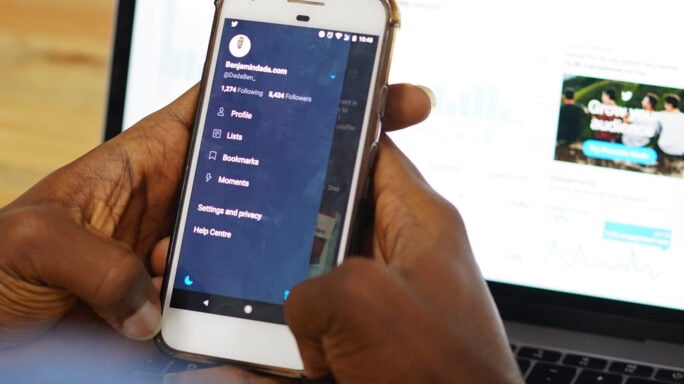Why now is a good time to start a business: Advice from our experts

Why is now a good time to start a business? Because “problems create opportunities for entrepreneurs,” says L. Gary Boomer of Boomer Consulting. 2020 has certainly come with its fair share of challenges. But, when we spoke with our panel of entrepreneurs and business experts they viewed 2020 as the year of opportunity. Below is an edited transcript of our Twitter chat.
Why is now a good time to start a business?
“This makes me think of the phrase ‘The best time to plant a tree is 20 years ago, the second-best time is now.’ It’s the same for starting a business. Right now, while things are drastically changing is an opportunity to take advantage and start something new.” – Charlie Appel Agency, @ColfaxInsurance
“This is a great time to start a new business. New, low cost technologies can provide you [with] many advantages in how you provide services. Consider a side gig as a way of starting your own business.” – Tripp Braden, @TrippBraden
“Now is a great time to start a business because shopping and buying preferences and behaviors are changing – and you can introduce new products and services that tune into these new needs.” – Laurie McCabe, @lauriemccabe
“COVID has allowed us to STOP and evaluate not only our health, but our passion, purpose, and what are the new necessities. Looking at what are the needs to move through this new normal create/bring about inventions and innovations that become businesses.” – Kay Dexter, @TheKayDexter
“Two great reasons to start a busines during a downturn is less competition for resources and also allows for you to be more focused on customer needs which is core to any business.” – Rafael Casas, @SageRafaelCasas
Which industries or niches offer the greatest opportunities for starting a new business?
“There are lots of great opportunities in many areas. Reimagine new products and services that solve new problems and address new customer requirements.” – Laurie McCabe, @lauriemccabe
“Service businesses are the best opportunities for starting a new business. (1) Everyone has some skill they can turn into cash. (2) Service businesses have the lowest startup costs. (3) They have short ramp-up times.” – Anita Campbell, @anitacampbell
“E-sports, distribution, and service industries are all growing.” – L. Gary Boomer, @lgboomer
“Ironically, movement of goods – shipping & logistics, distribution, exporting/imports. Education – virtual learning education – what does it look like within this sector that can aid educators, faculty/stagg and parents/guardians.” – Kay Dexter, @TheKayDexter
“Previous economic downturns have produced some high-profile US companies: Airbnb, Disney, Slack, Uber, and Venmo, to name a few. There really is opportunity everywhere if you’re creative and customer focused!” – Rafael Casas, @SageRafaelCasas
What are the key performance indicators that new businesses should track?
“The most important metric for new businesses is sales compared to a prior period. Always compare sales to a prior week, month, quarter. Numbers without context can be misleading.” – Anita Campbell, @anitacampbell
“Cash is king in any small business. Know your burn rate and how long you can survive. Utilize cloud-based accounting software to provide real-time metrics.” – L. Gary Boomer, @lgboomer
“Every type business has different performance indicators. They should all be: well defined, quantifiable, clearly communicated, crucial to achieving your goals, applicable to your specific business. This also means that they are written in a format that allows you to review them on a daily basis to monitor your progress.” – Tripp Braden, @TrippBraden
What lessons have you learned from the 2008 recession that can be applied to starting a business in 2020?
“Create a GPS plan on where you want to be at the end of 2020. Then create Plans B, C, and D as options when things don’t go according to Plan A. Keep two eyes on cash flow and learn to play the ‘what if’ game. All this should help your business see 2021.” – Brian Moran, @Brianmoran
“The consumer landscape is so different than it was in 2008. More ways to sell. More places to get merchandise. More cheap (free even) ways to market.” – Rieva Lesonsky, @Rieva
“Know your top 3 dangers, opportunities & strengths. Pivot quickly with a revised vision and plan. Hold yourself and others accountable. Accountability is the fastest way to improved results.” – L. Gary Boomer, @lgboomer
“Many of the businesses that failed in 2008 failed because they tried too many things, not too few. It’s critical you choose what you do best and focus on developing that market.” – Tripp Braden, @TrippBraden
“Just because you can qualify to borrow money doesn’t mean you should. Make sure you partner with a great #CPA to put you on the right track to be successful.” – Rafael Casas, @SageRafaelCasas
What customer needs resulting from the pandemic should new business owners consider?
“Speed of delivery and contactless delivery, ease of use, community building via SM (since so many of us are remote now)” – Charlie Appel Agency, @ColfaxInsurance
“Customers have been knocked out of their comfort zones. Almost everything they knew and did on a daily basis is still upside down. What they want is to feel good again and reassured about the future.” – Brian Moran, @Brianmoran
“Provide alternatives. Consider permanently incorporating things like curbside pickup into what your #smallbiz offers.” – Rieva Lesonsky, @Rieva
What is the most important piece of advice you have for new business owners?
“Keep your options open. Flexibility is the new superpower that will differentiate between those that succeed and those that fail over the next few years.” – Lyndon Johnson, @THINK_Lyndon
“Accept that your best plans will fail and you will be forced to innovate in ways you didn’t expect. Realize that at the start of any new business your ability to innovate and learn from you failures is critical.” – Garrett Wagner, @garrettwagner37
“Four suggestions for new business owners: 1) Under promise and over deliver, 2) Keep your sales pipeline full at all times, 3) Watch cash flow like a hawk! 4) Create a board of advisers and meet with them weekly. Make them hold you accountable to your goals” – Brian Moran, @Brianmoran
“Take the time to evaluate your strengths, then determine how you can take it and turn it into value that is consistent with consumers. Never take in doubt and know consistency and learning will help you to grow into the brand you have dreamed of.” – Blue Tag Masks, @BlueTagMasks
Next steps
Thank you to everyone who participated in this Twitter chat. Visit our Twitter moment to read the full conversation.
If you are looking for more tips and advice to help you start your business, we encourage you to download our Small Business Survival Toolkit , which includes a guide , business plan template , and cash flow forecast template designed to help you survive the first two years of your business.
If you are looking for resources to help you get customers, hire employees, and manage uncertainty, read: Ready to be your own boss? Resources to help you start, manage, and move your business forward.
If you are looking for tips to help you find a mentor or build your team of advisors, read: Seven characteristics of an effective mentor.
If you need help finding a CPA, download our guide: How to choose an accountant .







Ask the author a question or share your advice